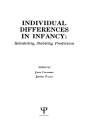Despite their prevalence and weight in many of his collected works and letters, Jung did not articulate a general theory of the ego and consciousness. Towards a Jungian Theory of the Ego examines the development of Jung’s concept of the ego as he expanded and revised this concept, from his earliest formulations about consciousness while a student, to his mature thoughts at the end of his life.Drawing on Ego Psychology as a theoretical framework, Evers-Fahey proposes that Jung uses the concept of ego in four distinct ways and that he developed and used his ego concept based on two discrete paradigms. These distinctions explain the confusion and ambiguity found when examining the development of Jung’s analytical psychology over his lifetime. This book provides an examination of ego development and ego defenses based on a unique Jungian standpoint, as well as discussion of the relationship between the ego and the Self and the ego and ‘the individuum’. Furthermore, the inclusion of a historical framework helps to place the development of these concepts in context.This book proposes a theory of ego psychology based on Jungian theory rather than traditional psychoanalytic theory, thereby filling a gap in the knowledge of Jungian theory. The book will be essential reading for academics and postgraduate students engaged in the study of Jungian psychology and psychoanalytic theory and will also be valued by those interested in Jung and ego psychology more generally.
Karen Evers-Fahey
Towards a Jungian Theory of the Ego [PDF ebook]
Towards a Jungian Theory of the Ego [PDF ebook]
Compre este e-book e ganhe mais 1 GRÁTIS!
Língua Inglês ● Formato PDF ● Páginas 224 ● ISBN 9781317219583 ● Editora Taylor and Francis ● Publicado 2016 ● Carregável 3 vezes ● Moeda EUR ● ID 4945114 ● Proteção contra cópia Adobe DRM
Requer um leitor de ebook capaz de DRM











